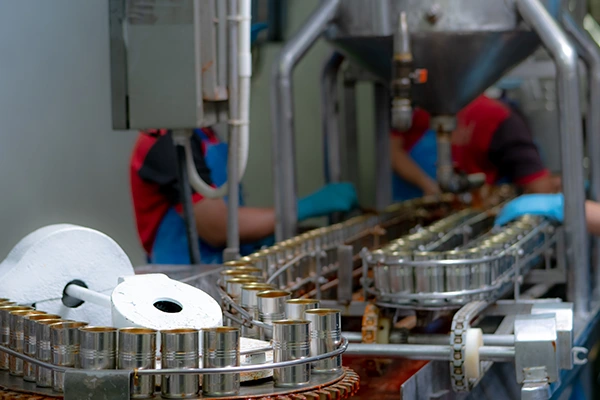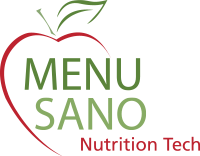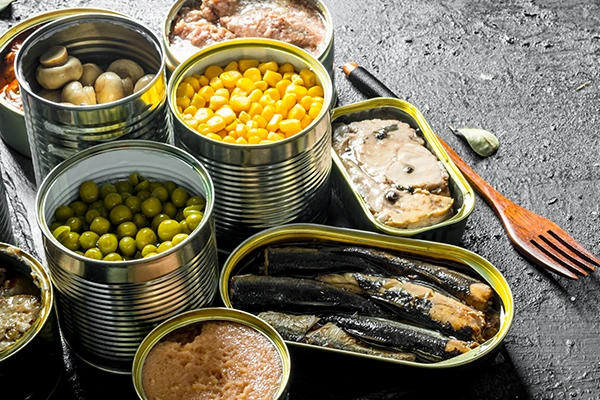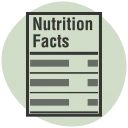Canned foods are a convenient and shelf-stable way to enjoy fruits, vegetables, proteins, and other food items. But many people wonder if canned goods retain their nutritional value. When it comes to nutrition, the process of canning does not have an impact on most vitamins or minerals in food items such as fruits and vegetables.
Modern canning technology helps preserve the nutrients of fresh produce while ensuring safety and convenience. Canned foods also offer some advantages over fresh products as they are pre-cut and cooked to eliminate bacteria that can cause foodborne illness.
How Canned Foods are Made
Canned foods are usually made with fresh produce, but some manufacturers may use frozen ingredients. The canning process begins by prepping the ingredients, such as washing and cutting them into smaller pieces or slicing them into thin sheets.
Next, the food is heated to a temperature that kills any existing bacteria. This step also helps to soften the product for easier packing in cans. Following this, the food is placed in cans along with water or sauce for flavor and texture.
The cans are then sealed and sterilized before being shipped off to retailers’ shelves.
Read more: What you should know about the Healthy Menu Choices Act

Benefits of Canned
The main benefit of canned foods is the extended shelf-life. Canned foods can last for years without losing their flavor, nutrients, or texture. This makes them an excellent option for stocking up on staples like beans and vegetables that you may not be able to find fresh year-round.
Canned foods are also much easier to transport than their non-canned counterparts. A single can of food takes up significantly less space than its raw ingredients – making it an ideal choice for camping trips and other outdoor activities.
Finally, almost anything can be canned with the right tools and procedures. From traditional dishes like stews and soups to more exotic fare like pickled eggs or jellyfish – there’s no limit to the delicious and nutritious recipes you can create with canned ingredients.
Canned food may not be as glamorous as some other cooking methods, but it has plenty of advantages that make it worth considering. With its long shelf life, portability, versatile ingredients, and convenience – there’s no denying that canned food is a great choice for anyone looking to make the most out of their meal prep. Whether you’re stocking up on emergency supplies or just want an easy way to create a quick and delicious meal, canned food is always a great option.
Read more: Serving Sizes according to the CFIA
How does canning affect nutrient levels?
But what about the nutritional value of canned food? Does the canning process or storage affect nutrient levels in any particular way? The answer is both yes and no.
On the one hand, some nutrients – like vitamins A and C – are sensitive to heat and light exposure, so they may be lost during the canning process. On the other hand, specific vitamins and minerals are actually enhanced by the canning process, as it helps break down cell walls which makes them more available for absorption.
When it comes to storage, most canned foods can be stored for extended periods of time without a significant impact on their nutrient levels. However, if cans become swollen or dented, they should be discarded to prevent the potential contamination of bacteria that could lead to food poisoning.
In conclusion, canning and storage do have an effect on the nutritional content of foods, but this effect varies depending on the type of nutrient and other factors such as added ingredients or storage conditions. It’s important to read labels carefully and store cans correctly for maximum nutritional benefit.
Read more: So much more than just an ordinary cupcake
Some contain added salt, sugar, or preservatives
Some canned foods contain added salt or sugar, which might increase calorie content but also help preserve flavor. Ultimately, it’s important to check nutrition labels and ingredient lists to see how much of a particular nutrient is found in each canned food item.
Canned foods may also contain preservatives like sodium benzoate or potassium sorbate, which extend the shelf life of foods but can also be potentially damaging to health. It’s important to consider this when deciding whether canned food is right for you.
Read more: The Rise of Gen Z Consumers

How to make the right choices
Eating a well-balanced diet of fresh, frozen, and canned foods can give you the nutrition you need while still satisfying your taste buds. When selecting canned foods, it’s important to read labels carefully. Not only can this help you make healthy choices, but it can also help ensure that you don’t overindulge on portions.
The best way to ensure that your canned food is healthy and nutritious is by reading labels and looking for low-calorie and low-fat alternatives. Additionally, purchasing organic foods or brands with fewer preservatives can provide a healthier option.
Finally, be sure to check expiration dates before using any canned food products. Choosing canned food is an easy way to add convenience and variety to meals without compromising nutrition and safety. With careful consideration of labels, ingredient lists, and expiration dates, you can make a balanced decision when choosing canned food products.
Ultimately, it comes down to personal preference when deciding which food is right for you. Take the time to compare products and find the best options available. In doing so, you can make sure that you are providing healthy meals for yourself and your family.
If you’re looking to show off the nutritional facts of your canned foods, give MenuSano a try. We are the fastest and easiest way to generate Nutrition Labels for all your manufactured foods.



















